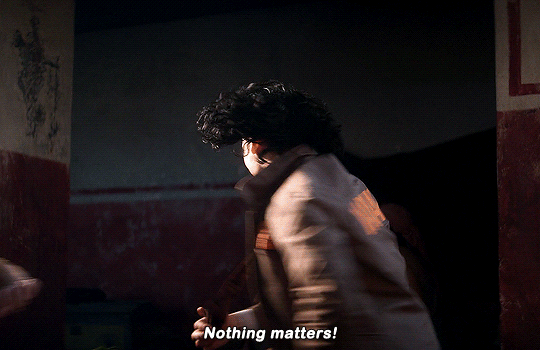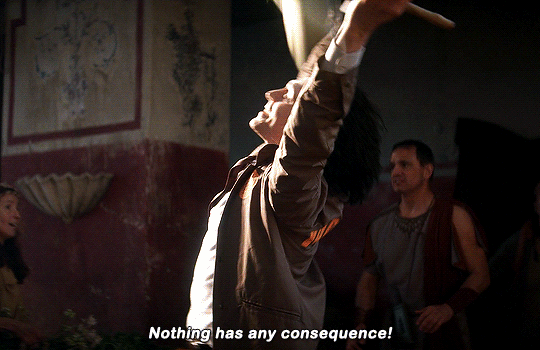When Canon No Longer Matters
I recently read an editorial on MuggleNet claiming that “a young Minerva McGonagall in Crimes of Grindelwald doesn’t break canon.” In the article, the author extracted information from different works published by J.K. Rowling, from Harry Potter and the Order of the Phoenix to Fantastic Beasts: The Crimes of Grindelwald – The Original Screenplay to Short Stories from Hogwarts of Heroism, Hardship and Dangerous Hobbies to Rowling’s article on McGonagall, which was first published on Pottermore, to explain why McGonagall appearing in Crimes of Grindelwald isn’t inconsistent with the wider canon of the wizarding world.
While reading this post, I was reminded of an article I wrote in 2018 in which my methodology for reconciling McGonagall’s appearance in Crimes of Grindelwald similarly involved scanning through all Wizarding World-related sources. As long as it was Wizarding World-approved, I considered it. I even dedicated a paragraph to Harry Potter: Hogwarts Mystery. However, the difference was that I concluded that McGonagall’s appearance in Crimes of Grindelwald did break canon and that this was concerning.
As a former MuggleNet staff member, prior to the release of Fantastic Beasts: The Crimes of Grindelwald, I published no fewer than 18 articles on it, ranging from topics such as character motivations and plotlines to trailer breakdowns. I was excited by the potential of the film because it hearkened back to a bygone era. Since Harry Potter and the Deathly Hallows was published, there have been additional projects, one of the most prominent being Harry Potter and the Cursed Child. The play was marketed as the “eighth story in the Harry Potter series,” and looking at the play’s official website, this tagline is still being used.
I purchased the rehearsal edition of the Cursed Child script book on the day it was released and finished it that night. While reading the script, I compartmentalized any inconsistencies between what was printed on the page and my knowledge of Harry Potter canon. I had a wonderful time reading that script because it was a moment of nostalgia for me. I haven’t read it again since that day and don’t desire to. I was thrilled to once again immerse myself in this universe that I loved and to revisit characters that I had grown up with. The experience could never be recaptured, but reading that script and not being able to put it down – because I had to know how it ended – was as close to the experience of reading the Harry Potter books as I had felt since the series had ended.
Back in the day, I used to peruse Harry Potter forums on MuggleNet and other fansites. I loved reading theories about the series and creating my own theories. As each book in the series was published, fans made connections to previous books and the hints that Rowling left along the way. Concepts that were introduced in Harry Potter and the Sorcerer’s Stone were revisited in Deathly Hallows. Like many fans, I praised Rowling’s writing because of how meticulously planned the series was. It’s these connections that make Harry Potter rereadable. Every time you read those books, there’s a chance that you’ll notice something new. Sometimes, your interpretation of the text changes because of your life experiences.
The dynamic nature of the way fans approach the Harry Potter series makes reread podcasts so appealing. When Alohomora! first started, it rekindled my love for the series. I listened to the podcast regularly and posted in the forums. In the years proceeding, several podcasts focused on closely reading the Harry Potter books have appeared. In some podcasts, hosts reread the books, and in others, hosts read the books for the first time. I’ve listened to many of these podcasts, and although the hosts have varying levels of knowledge regarding the series, they all contribute to the wider Harry Potter discourse.
Harry Potter means different things to different people, but it’s this discourse that enhances my love for the series. Theorizing has played a significant role in my Harry Potter fandom. Although reading the script for Cursed Child was nostalgic, the announcement of the Fantastic Beasts films brought another level of excitement. This was a brand-new story, separate from Harry’s story, about a different era. Speculating on these films filled a void in my Harry Potter fandom.
Let’s get back to McGonagall. In their attempts to explain why she appears in Crimes of Grindelwald, fans have proposed different theories of varying plausibility. Most of these theories involve making mathematical assumptions based on ambiguous timelines. When you’re pulling dates from various sources and forcing the pieces together like a jigsaw puzzle, things get convoluted. I think there’s a simpler explanation for why McGonagall appeared in Crimes of Grindelwald. It was fan service.
In a 2018 interview with the Empire podcast, David Yates described the inclusion of McGonagall in Crimes of Grindelwald as “an act of generosity.”
McGonagall, I thought, was lovely to have back in the stories. I know some fans have struggled with that. To me, it’s an act of generosity and wonder to have such an iconic character back in this world. It’s generous. And it’s Jo’s world. She can kind of do what she wants.
Rowling can certainly do what she wants. However, there are canonical aspects of the wizarding world that she has established over the years that can’t be ignored. In Sorcerer’s Stone, Harry learned in his first week at Hogwarts that “there was a lot more to magic […] than waving your wand and saying a few funny words” (SS 133). The same can be said for world-building. There are certain rules that should be followed, and one of those rules is not introducing characters in ways that are inconsistent with canon.
One month before Crimes of Grindelwald was released, I wrote an article in which I defended Rowling against accusations of retconning. I explained why these accusations were exaggerated. In the article, I remarked that “lately, I’ve found myself rolling my eyes when I’ve come across people accusing Rowling of retconning Potter.” Almost three years later, I can’t say the same thing. McGonagall’s appearance in Crimes of Grindelwald was a retcon.
The Harry Potter series would not nearly be as enjoyable to reread if there weren’t a degree of consistency between the books, which is probably why the film adaptations disappointed me. I can make peace with the idea that the books and the films exist as two entities independent from each other. However, this isn’t possible with the Fantastic Beasts films. There isn’t a Crimes of Grindelwald novel. The film is canon, yet it contradicts canon.
The most remarkable achievement of Crimes of Grindelwald is that it has made me care less about what will happen in future films. When it became clear that this series was going to delve into Dumbledore’s and Grindelwald’s backstories, I was delighted. I love the wizarding world, its canon, and its lore. The prospect of learning how Dumbledore defeated Grindelwald and seeing their duel portrayed on-screen filled me with excitement. It was this need to know that motivated me to read the script of Cursed Child in one sitting. Any flaws the script had were inconsequential. I simply wanted to know how the story ended.
I once wanted to learn everything I could about this universe. Now, it wouldn’t be the end of the world if I never learned how Dumbledore became the master of the Elder Wand or what the 12 uses of dragon blood are. If J.K. Rowling doesn’t care about her own canon, why should I? How can I engage in theorizing when I can’t be sure that canon won’t be disregarded?



